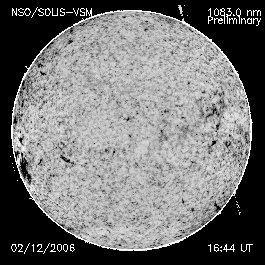Tsk, tsk, good sir. As always, Wikipedia comes to the rescue:
http://en.wikipedia.org/wiki/Salad_days
My usage of it was more along the lines of the heady days, where everything was going great and success was to be found under every rock.
I had no idea the root of that phrase was Shakespeare!
* * *
The "pentominoes" you mentioned immediately brought to mind a toy I remembered from my youth called a "Soma Cube".
http://en.wikipedia.org/wiki/Soma_cube
It is essentially a 3-D version of the pentominoes. The objective of the Soma Cube was not only to reassemble the cube, but also to reassemble an array of other shapes.
* * *
I'm a member of a motorcycle forum here, and there are two topics that will bring about the most activity:
- Whether "Loud Pipes Save Lives"
- Whether it should be required to wear helmets
There are some who claim it is an absolute necessity to have super-loud straight pipes so drivers of cars can be warned of a motorcyclist's presence. I think that is nonsense. A good air horn would have the same effect and not be a persistent noise element.
Riding without a helmet is almost a religious thing for some. Arizona has no helmet law, so a lot of people ride without one. Not me. I have a bright white full-face helmet. To me that offers three benefits: protection for my noggin' and face; protection from the blazing sun; people see that big white blob coming down the road, so they're more aware of me and are less likely to pull in front of me.
The pipes thing simple baffles me (pardon the pun). It strikes me as a justification after the fact. Loud pipes came about because they sounded "mean" and "tough." When others began to complain, this "they save lives" argument was cooked up to justify them. It's an uncompelling argument in my mind.
I raise this topic simply because I just posted to the forum asking a very simple question:
Given you have a choice to wear a helmet or not, do you also believe it should be the right of insurance companies, medical providers and government agencies to set consequences for your choice?The argument I most often see is that wearing a helmet won't save your life in all circumstances, so therefore it's not a guarantee of safety. Okay. But it is equally true that the helmet has benefit in at least some circumstances. That, it seems to me, is an premise that can't be refuted. It does not necessarily follow that "if some benefit, therefore must wear helmet." But it seems to me perfectly within reason for an insurance company to say, "You can save X% on your premiums if you wear a helmet," or "If you sustain the following types of injuries in a motorcycle accident and you weren't wearing a helmet at the time, we maintain the right not to cover your claim."
I expect some fireworks over my post. I expect some to rail at the notion that their decisions have consequences. They won't frame their argument like that, of course.
* * *
Three all-time top books (in no particular order), at this point in time. My list might change depending on my mood at the time.
- Freedom -- William Safire; a historical novel about the political intrigue that surrounded Abraham Lincoln. I've read this book only twice, but I found it to be an utterly fascinating portrayal of Lincoln; from the perspective of crafty politician.
- Those Who Love -- Irving Stone; a historical novel about Abigail Adams, the wife of John Adams, the second president of the United States. I've read this book perhaps a half dozen times. I just enjoy it that much.
- The Ascent of Science -- Brian Silver; a discussion of the dual role of science and philosophy since the days of Isaac Newton. The book that sent me on my search for God.


